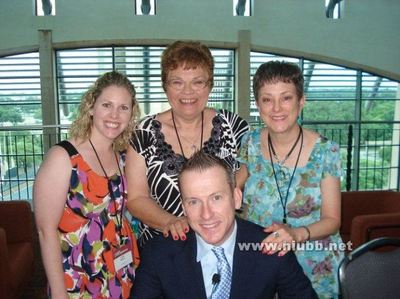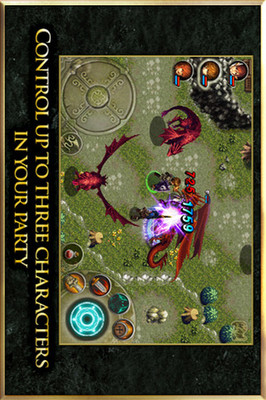如何教育孩子,这是大人的智慧,大人有修养,才能够担当得起孩子的榜样。下面是美国教师RonClark总结的教育经验。
罗恩.克拉克(Ron Clark)是美国纽约市哈莱姆学校教师(American teacher who has worked withdisadvantaged students in rural North Carolina and Harlem, New YorkCity),出生在北卡罗来纳州,大学毕业后周游列国,23岁开始在家乡的一所乡村学校任教,5年后来到纽约市哈莱姆区,取得巨大的教育成功。他曾3次受美国总统及夫人邀请带学生作客白宫,2000年当选迪士尼年度教师(theDisney American Teacher Award),出版著作《55条基本班规》(The Essential55,中译本书名为《优秀是教出来的》)和《教育者的11项卓越品质》,并创办罗恩.克拉克学院(Ron Clark Academy)。他被著名电视节目主持人奥普拉.温弗瑞称为“美国教师”(America'sEducator),他的传奇故事被好莱坞拍成了电影《热血教师》(The Ron ClarkStory),成为一名世界瞩目的美国明星教师。自从赢得了度迪斯尼美国优秀教师奖以来,罗恩.克拉克一直在全美为各地的教师、家庭教师协会和学校董事会作报告。他的教学经验被多次录制成广播、电视节目在全美播出,受到广大教师、家长和孩子们的热烈欢迎。
“美国年度教师”罗恩.克拉克的55条班规(TheEssential 55 by Ron Clark)
注:中文翻译得不是很完整,最好参看后附的英文原文。
1、与大人应对,要有礼貌,有分寸。 回答我问题时,总是要说“是的,先生”或“不,先生”,只是点头或用其他“是”或“不是”的表达都不行;
2、与人互动,眼睛要看着对方的眼睛。 要知道视线接触的重要性。如果有人在说话,眼睛要一直注视着说话的人;如果有别的人发表意见,则要转过身去,正对着那个人。
3、别人有好表现,要替他高兴。 要对游戏获胜者或把某事做得特别出色的人表示祝贺。鼓掌至少持续3秒钟,两个手掌充分接触,以便掌声足够响。
4、尊重别人的发言与想法。 克拉克先生的办法是:“在讨论问题的时候,要对其他同学的评论、观点和想法表示尊重。要尽可能地这样说:“我同意约翰的观点,同时我也感到……”“我不同意沙拉的看法,尽管她抓住了问题的核心,但我觉得……”或者“我认为维可多的观察真是太精彩了,它让我意识到……”
5、自己有什么好表现,不要炫耀,输给别人也不要生气。
6、如果别人问你问题,你也回问他问题。
7、打喷嚏、咳嗽都要说对不起。
8、不可以有不礼貌的小动作;不要咂嘴、发啧啧声、转眼珠,或做出对人不敬的手势。
9、别人送你任何东西,都要说谢谢。
10、接到奖品和礼物,不可以嫌弃。 克拉克先生对待这种情况的办法是:毫不犹豫地收回礼物。
11、用小小的贴心,为别人制造惊喜。
12、改同学试卷时要特别谨慎。 “给其他同学的试卷判分时,如果比实际分数高了或低了,高出或低出的分数将在你本人的试卷中扣除。”
13、全班一起念课文时,要看着正在念的一字一句。 “每当给孩子们念书的时候,我会感情饱满、精力充沛、表现力丰富地去读,我会全身心地进入角色。”克拉克先生还根据角色不断变换各种嗓音,做各种动作。“这种方法使整个阅读的过程充满了乐趣,同时也告诉孩子们,阅读是件多么令人着迷的事情。”“如果我看到那个学生在我们读书的时候眼睛没盯着那一页,或者我叫一个学生接着读,他却不知道我们刚才读到哪里了,那么这个学生的名字就会被记在黑板上。”习惯成自然,以后孩子们集中注意力的能力会很高的吧。
14、以完整的句子回答所有的问题。 第一复述问题并给出答案,第二给出主要理由,第三展开说明理由,最后重复问题并给出答案结束。克拉克先生要求学生用这样的方式回答问题,锻炼学生的语言表达能力合写作能力。
15、不要主动讨奖品。 克拉克先生经常好学生发些奖品,但成绩好的学生索要奖品时,他会坚决拒绝。“我努力让他们知道,尽力做好每件事不是为了奖品,而是为了他们自己。”“帮助孩子们最终学会肯定自我奋斗的价值。”
16、每天都要做完作业。
克拉克先生的高招是——“在教室外贴了一条巨大的横幅”,上面写着:“全班所有同学连续完成全部家庭作业___天”。当孩子们连续完成超过10天,克拉克先生就开始给孩子们做好吃的小点心。孩子们最长是连续62天,克拉克先生说他都成了“厨爷”了。真是够疯狂的,那年克拉克先生的学生们成绩跟做了火箭一样狂涨。
17、换科目的时候,动作要快、要安静,要守秩序。 克拉克先生训练学生们象游戏、比赛一样的换书、换本,还帮老师按投影机(接电源、拉屏幕、关窗户、拉窗帘、关灯),孩子们被训练得井然有序、津津有味、其乐无穷~~
18、做什么事都要有条理 为了帮助孩子们变得有条理,克拉克老师在假期里去商店买回了一套他希望孩子们人手一份的用具,能装下笔记本的大架子、活页纸、笔记本、尺等等。克拉克老师把买到的所有物品摆放在地板上拍照,并列好明细清单,在开学前3个星期给每个学生发了一份照片和信。开学时,克拉克老师仔细检查每位同学的用品,告诉他们每件东西什么时候用,在上面贴上标签,还给孩子们做示范等等,后来孩子们自然变得非常有条理,克拉克老师领悟到,其实孩子很喜欢条理化。另外,值得一提的是,克拉克老师每年都问他以前的学生,他们的新老师对他们在班上的表现有哪些看法。这样克拉克老师就可以从侧面了解自己的教学有哪些不足,有哪些成功。多么有心的老师啊!
19、老师在指定作业的时候,不要叫苦;如果谁违反了,他就必须做两倍的作业。 克拉克坚持这个严厉的惩罚,就是为了让孩子以积极进取的心态接受必须的完成的任务。克拉克老师认为:与其让布置的每一项作业(或必须完成的任务)都被抱怨、每一件应该完成的工作都充满了逆反情绪,还不如让他们做几次双倍的作业,从此以后在接受作业(和任务)的时候再也不会抱怨和发牢骚。
20、别的老师来代课,也要守班规。 这个细节的目的是为了培养孩子“无论有没有老板在身边,他们工作都是为了自己”,也就是培养自觉性。克拉克为此做了很多努力,苦口婆心的教导。
21、课堂上发言,或起身,应该讲规矩。
22、不可以上课上一半,起身去倒水。
23、见到每个老师,都要说某某老师好。
克拉克老师要求孩子们“要迅速记住全校老师的名字”,并在遇到的时候打招呼,同时还没忘记强调排队走路的时候除外,因为那时有“不许讲话”的纪律。克拉克老师希望学生们培养起良好的社交习惯,以便进入社会后“能主动了解周围的同事或邻居”,“并努力做到善意、有礼貌地对待别人。”
24、注意洗手间的卫生,把身边的病原减少到最少。 在这节里,克拉克先生要求学生:必须冲厕所,如果按纽很脏就用手纸垫着。“己所不欲,勿施于人”自己不愿意使用肮脏的小便器,就一定要冲洗自己用过的。
25、让客人有宾至如归的感觉。 “如果有人要参观我们教室,我会派两名学生在教学楼前等候,并举着一个欢迎牌。当我们的参观者到来时,接待者要和他们握手,向他们作自我介绍,并致欢迎辞,然后,在带他们进教室之前,先领他们简单地参观一下校园。”
26、不要帮同学占位子。 如果有人想做你身边的空位子,就让他坐,不要刻意去排斥什么人。“我们是个大家庭,应该善意地对待和尊重别人。”
克拉克老师很讨厌看到有孩子被孤立,反对孩子总坐在相同的位置上或故意占座位。克拉克老师教育孩子们“必须保证他们自己和他们的朋友懂得包容别人,并努力地接受别人参与他们的活动。”
27、同学受罚的时候,不要看着他。 “为了避免尴尬和因公开展示而引起的愤怒,我要保证孩子们理解和遵守这个规矩。”不做落井下石、幸灾乐祸的事是对的,我还是那句话“己所不欲,勿施于人。”
28、对作业的问题,可以打电话来我家,我没接的话,你可以留言,但只要留一次就够了。 克拉克老师为了与学生保持更紧密的联系,把自己的电话公布给学生们。
29、用餐要讲究礼仪。 克拉克老师耐心地将西餐的全套礼仪教给孩子,孩子们居然很爱学,象小绅士一样。
30、吃完饭,自己的垃圾自己处理。 克拉克老师要求他的学生们吃晚饭要把桌子擦干净,掉在地上的要捡起来仍到垃圾筒里,还要检查垃圾箱周围有没有垃圾并清理干净。克拉克老师还要求孩子看到别人乱丢的垃圾也要拣起来,经常奖励拣垃圾的孩子,也经常公布不拣垃圾的孩子。为此花了一年的时间才基本培养好了一个班的孩子。
31、接受别人的服务要惜服。
32、坐车要坐好,别打扰司机。 这里,克拉克老师强调学生乘坐校车时的纪律,是礼貌、纪律,更是为了孩子们的安全。克拉克老师强调,下车的时候“任何时候都要记得感谢司机,并祝他一天开心”。
33、认识新朋友,要记住对方的名字。 克拉克先生有意训练孩子们这项技能,立下了一些有助于记住人家名字的规矩:介绍后要起立握手,并称呼人家的名字问好;交谈中尽量多重复人家的名字;分手时要再次重复他们的名字。
34、吃自助餐,或与人同桌,取菜不可贪多。 “永远不要取走比你实际所需的分量多的食物。”“因为这样不仅会造成浪费,而且如果你不给别人留够了的话,对别人也是一种不尊重。”克拉克老师在见到孩子们盘内堆积如山的食物后,要求孩子们“盘子被食物覆盖的面积不得超过四分之三,一种食物的上面不能摞上其他的食物。”
35、别人掉东西,请弯腰去帮他捡。
36、进门时,如果后面有人,请他扶住门;如果开门的时候需要拉的话,你就拉开门,自己站在一边,让别人先过去,然后你再走过去;如果开门的时候需要推门,你就在自己走过去后用手扶住门,别松手。 克拉克老师认为,教孩子一些小小的善意举止虽然看起来微不足道,但对孩子们了解如何尊重和重视别人大有裨益。克拉克老师教孩子的时候非常注意细节,如扶门时站的位置、扶多长时间、说点什么等等更加细节的东西。
37、别人碰到你,不管有没有错,都要说声对不起。 克拉克老师说:在学校里,一次轻微的碰撞,也能导致第三次世界大战的爆发。克拉克老师对礼貌是非常重视的,在孩子乘坐飞机之前,他亲自在教室里把椅子摆成飞机过道的样子,训练孩子们。
38、进行校外教学时,无论到哪一个公共场所,都要安安静静。 “有时候,人们做了什么好事不一定都能给他人留下印象,尤其是他做这件好事的时候其实周围根本没人,他做好事是出自本心,而不是给别人看,这就更值得你敬重了。”
39、去参观别人的地方,要不吝于赞美。 这看似是一种对主人的尊重,如果形成习惯,也可能形成一种乐观的生活态度吧?克拉克老师认为孩子们应该有这样的风度,所以在外出前专门对孩子们进行这方面的训练,这是把握课外机会对孩子的培养。
40、全校师生集会的时候,不要讲话。 我们的老师们也很重视纪律的,经常强调。有趣的是,为了让学生知道怎样保持纪律,可拉克老师把学生们叫到礼堂里,坐好,手放在大腿上,眼睛看着前面。然后,克拉克先生不断地在礼堂的各个位置出现,喊学生的名字,想办法骚扰孩子们,看哪个孩子破坏纪律。生动有趣,用心良苦。
41、接电话的言谈要得体。
42、一趟校外教学结束,要谢谢所有随行的老师和家长。 “我不在意你是否感谢我,我关心的是你要学会在别人给你提供额外帮助的时候,你能恰当地表示感谢。”
43、搭乘电梯时,要站右边,请赶时间的人走左边。 克拉克教孩子“在自动扶梯上,要站在右侧,从左侧走动”,“在进入电梯、地铁或地下通道前,要礼让出去的人先行。”
44、列队行进时不要说话。 克拉克先生上班的第一天,管理的是个纪律散漫班级。克拉克先生要求孩子们排队吃饭时要有秩序,要安静,如果有一个孩子多说一个字,全班就多等1分钟。结果,在集体等候45分钟后,孩子们排着整齐、安静的队伍进入食堂。用克拉克先生的话来说,校长站在门口“吃惊地看着我们发呆”。
“也许有人会说,这有点太军事化了,但是我认为孩子们其实喜欢这么排队,他们会为自己能把队排得这么好看而感到骄傲。”
克拉克老师要求孩子们在排两队进门的时候,“离墙近的那一队先进,另一队要笔直地站在大厅的中央,留在那里等候我的命令,接下来我会说:“每个人准备……行动!”所有孩子立刻会象一个完整的整体一样,右腿迅速横跨一步,靠向墙边。看到孩子们在同一刻步调一致地行动,会令人产生一种感觉,那就是“酷!”然后我再发出命令:“进入!”他们就整齐地进去了。”

45、不可以插队,但看到别人插队时不可以大呼小叫,让老师知道就好。 “如果有人插到了你前面,一个字也不要说,随他去,只要告诉我一声,我就会来处理的。如果你非要和加塞儿的人理论,你也一样会有麻烦的,这不值得你这样做。同学之间解决任何纠纷,都应该在自己着手处理之前,先带着问题来找我。”
46、看电影时不要说话。 克拉克先生希望孩子们懂得如何文明地观看电影,从而使很多人看电影的经历成为一种更加愉快的享受。这也是教孩子们学会尊重别人。
47、不可以带玩具到学校来。
48、有谁欺负你,让老师知道。
49、自己的理想自己要坚持。 “在我一生中,已经数不清有多少次了,我想做某事,而周围的每个人都反对。” “我希望他们(我的学生们)有勇气为自己的信念义无返顾地付出努力,并为他们想要做的事情而奋斗。
50、要乐观,要享受人生 “保持乐观的态度,尽情享受生活。有些事情不值得大惊小怪。学会为每件事作好准备,去追求生命中的美好。” “我自己也在努力培养这种品质,并且以此来影响我的学生。”
51、既然想做一件事,就只管去做。 克拉克先生经常给他的学生讲自己的故事和其他相似的故事,教育孩子们,凡事想好了就勇往直前地去做,全力以赴,这样到什么时候都不会后悔。
52、从错误中学习,继续向前迈进。 克拉克先生现身说法,讲述人生道理。老师也是人,是人就会犯错误;老师不是一般人,个人的错误会影响班里的很多孩子。
53、不管如何,一定要诚实。 “开学第一天,我反复跟孩子们解释,即使有时讲实话会遇到一点小麻烦,但还是值得的,说明你良心未泯。我告诉他们讲实话非常重要,因为此举能赢得别人的尊重和信任,而这两种荣誉应该伴你一生”
54、抓住今天。 在我的学生生涯中,珍惜时间是老师们谈的最多的,但那时理解不深。如今,已经失去了太多的时间了,认识自然更深,而且会越来越深,但浪费的时间真的少了吗?人啊,最难战胜的就是自己。珍惜时间吧,做该做的事,做该做而不愿意做的事。
55、在你的能力范围内,做最好、最好的人。
这些规则真的能改善学生的行为举止,提高他们的考试成绩吗?“是的”,2000年美国迪士尼年度教师罗恩.克拉克说。
如今,克拉克用他那久经考验的独特方法激励着世界各国成千上万的教师。他们研读克拉克的著作,看好莱坞拍的《罗恩.克拉克的故事》,还可以到克拉克在亚特兰大创办的学校参观——这所专门为“困难学生”创办的学校开门之前,预约参观的就已达到数千人之多。
只有当学生以礼相待,学习才会在课堂上发生。
卡拉克的成名是因为他在北卡罗来纳乡村和纽约市哈莱姆区薄弱学校所取得的成功。在这两个地方,他帮助困难重重的学生树立了自信,提高了成绩。除了永远激情四射,在教学中不断创新且重视学生实际生活经验外,克拉克把他自己的成功归功于他给学生定下的55条班规。
在他的畅销书《55条基本规则》中,克拉克详细介绍了他集礼仪修养、纪律守则和做人原则于一体的班规。不少教师在看了此书后深受鼓舞,尝试着跟着学,有的在克拉克的网站上留言说:“我照着这么做了一年,学生考试分数从来没有这么高过,它给我的课堂和教学带来了难以置信的变化。”
克拉克说,恰当的行为举止与礼仪修养,是学生学习成功的关键因素之一。只有当孩子们变成了一家人——大家都相互尊重,以礼相待,相互支持——学习才会在教室里发生。他的这些规则很多都是关于集体组织的,为学生的成功营造了一个家的氛围。有了这些规则,学生不再只顾自己,只关心自己的目标,而是凝聚成了一个紧密团结的集体。
“我把教室变成了一个家,这样我们所有人都要对每一个人的成功负责,我们总是相互提携。教室里每天都充满了鼓励和激情。当孩子处在这样一种氛围中,他们就会更加努力,他们想学到更多东西,他们的学习成果就会体现在考试分数上。”
这些规则起作用的另一个原因,是因为它们给学生提出了明确的要求。克拉克说:“我所知道的是——我从来没有怀疑过——你对学生提出的要求越明确,收到的效果就越好。无论是纪律还是学习。”批评者通常以为学生会讨厌这么多规则,但克拉克坚持认为,学生喜欢确切地知道哪些事情有利害关系,以及在特定的情景下该如何做。■
附英文原文
RON CLARK'S ESSENTIAL 55
by Barbara Clark
1. When responding to an adult, you must answer by saying,“Yes ma’am” or “No sir.” Just nodding your heador saying any other form of yes or no is not acceptable.
2. Make eye contact. When someone is speaking, keep your eyes onhim or her at all times. If someone makes a comment, turn and facethat person.
3. If someone in the class wins a game or does something well, wewill congratulate that person. Claps should be of at least 3seconds in length with the full part of both hands meeting in amanner that will give the appropriate clap volume.
4. During discussions, respect other students’ comments,opinions, and ideas. When possible, make statements like ,”I agreewith John, and I also feel that…” or “I disagree with Sara. Shemade a good point, but I feel that… “ I think Victor made anexcellent observation, and it made me realize…”
5. If you win or do well at something, do not brag. If youlose, do not show anger. Instead, say something like, “I reallyenjoyed the competition, and I look forward to playing you again,”or “Good game,” or don’t say anything at all. To show anger orsarcasm shows weakness.
6. If you are asked a question in conversation, you should aska question in return. If someone asks, “Did you have a niceweekend?” you should answer the question and then ask a question inreturn. It is only polite that you are just as interested in themas they are in you.
7. When you cough or sneeze or burp, it is appropriate to turnyour head away from the others and cover your mouth with the fullpart of your hand. Using a fist is not acceptable. Afterward, youshould say, “Excuse me.”
8. Do not smack your lips, tsk, roll your eyes, or showdisrespect with gestures.
9. Always say thank you when I give you something. If you donot say it within three seconds after receiving the item, I willtake it back. There is no excuse for not showing appreciation.
10. When you are given something from someone, never insultthat person by making negative comments about the gift or byinsinuating that it wasn’t appreciated.
11. Surprise others by performing random acts of kindness. Goout of your way to do something surprisingly kind and generous forsomeone at least once a month.
12. Occasionally we may grade each other’s papers as a group.The only marks you are allowed to make on others’ papers are an “X”and the number they got incorrect. The person whom you graded willalways have an opportunity to debate answers marked wrong with meif they think they have it correct.
13. When we read together in class, you must follow along. IfI call on you to read, you must know exactly where we are and beginreading immediately.
14. Answer all written questions with a complete sentence. Forexample, if the question asks, “What is the capital of Russia?” youshould respond by writing, “The capital of Russia isMoscow.” Also, in conversation with others, it isimportant to use complete sentences out of respect for the person’squestion.
15. At times throughout the year, I will give rewards for goodbehavior, academic performances, and other acts worthy of praise.If you ever ask me for a reward, however, it will not be given. Itis rude to ask if you are getting something for good behavior. Youshould be good and try your best because you are trying to betteryourself, not because you are anticipating a reward.
16. Homework will be turned in each day for each subject byevery student with no exceptions.
17. When we are in transition from one subject to the other,the change will be swift, quiet, and orderly. We should beconsistently able to turn from one book to another, complete withall homework and necessary materials, as quickly as possible. Theopportune amount of time to spend in transition should be less thanten seconds, and we will work toward a goal of seven seconds.
18. You will make every effort to be as organized aspossible.
19. When I assign homework, there is to be no moaning orcomplaining. This will result in a doubled assignment.
20. While you are with a substitute teacher, you will obey thesame rules that you follow when I am with you, (I know this ishard, but it is important.)
21. We will follow certain classroom protocols. We will beorganized, efficient, and on task. In order to do so, we willfollow these rules:
Do not get out of your seat unless you are taking care of yourpersonal business.
Sign out whenever you leave the room.
Do not sign out if someone is teaching the group.
Do not speak during lessons unless:
1. You raise your hand and are calledon.
2. You are answering a question.
3. You are instructed otherwise (for example,group work).
22. You may bring a bottle of water and leave it on your desk.If it is left in the room, it will be thrown away.
23. Learn the names of other teachers in the school and greetthem when you are entering or leaving school, during recess, on anerrand, or in the cafeteria. (Note: If you are inline with the rest of the class, you are not allowed to talk to theteachers because the no talking rule is in effect.)
24. Flush the toilet and wash your hands after using therestroom.
25. Do not save seats in the lunchroom. If someone wants tosit down, let him or her. Do not try to exclude anyone. We are afamily, and we must treat one another with respect andkindness.
26. If we have a visitor to the class that you do not know,you will shake hands and tell the visitor who you are.
27. If I or any other teacher in the school is speaking to ordisciplining a student, do not look at that student. You wouldn’twant others looking at you if you were in trouble or beingreprimanded, so don’t look at others in that situation. If you arethe student I am talking to, do not get angry, or fuss at studentswho are looking at you. Let me know and I will handle thesituation
28. If you have a question about your homework, you can callme. If I am not at home, you can come to my classroom at 7:30 inthe morning, or you can stay in the afternoon.
29. There are several manners dealing with food that you mustfollow. I call these my ABC’s of Etiquette.
A. When you first sit down for a meal, immediately place thenapkin in your lap. If your silverware is wrapped in a napkin,unwrap it as soon as you sit down and place the napkin in yourlap.
B. When you are finished eating, place your napkin on the tableto the left of your plate.
C. Never place your elbows on the table.
D. Use one hand to eat, unless you are cutting or buttering food,Never have your fork in one hand and a glass in the other.
E. Do not lick your fingers. There is a napkin provided for thepurpose of cleaning fingers.
F. Do not smack your lips or chew noisily.
G. Do not chew with your mouth open.
H. Do not talk with your mouth full. Don’t place a hand over yourmouth and talk anyway. Wait until you have swallowed your food tospeak.
I. If something is caught in your teeth, wait until you are inthe restroom to remove it.
J. Do not slurp.
K. Do not play with your food.
L. If you drop your fork, napkin, or anything else on the floor,do not pick it up. When something has dropped on the floor, ask awaiter for a replacement; leave the dirty one on the floor
M. Use your utensils for eating almost everything. Here are 10types of foods you may use your hands to eat: pizza, bread, Frenchfries and chips, bacon, corn on the cop, fried chicken, smallfruits, cookies, hot dogs, hamburgers, and sandwiches, andasparagus.
N. Never reach over someone’s plate to get something. Forexample, say, “Will you please pass the salt?”
O. Never start eating off your tray until you are in yourseat.
P. When you are eating at a restaurant, do not begin eating untileveryone at the table has received their food.
Q. Never complain if the line is too long, the food isn’t good,or if there is a wait.
R. If you are unsure which silverware to use, simply start withthe fork, knife or spoon that is the farthest from your plate. Onthe left, your salad fork is on the outside and your dinner fork inon the inside. On the far right, is your soup spoon. Beside it, isthe spoon you will use to stir your coffee or tea, then your saladknife, and then your dinner knife. The utensils above your plateare for dessert.
S. When finished eating, do not push your plate away from you.Leave it where it is. To show you have finished eating, lay yourfork and knife together diagonally across the plate. Place the forkwith the tines down; place the sharp side of the knife facing you.Of the two utensils, the fork should be closest to you.
T. Never place la piece of silverware that you have used back onthe table. Leave it on a plate or saucer.
U. If you didn’t use a utensil, do not place it on a plate orsaucer when you are finished. Leave it where it is.
V. Always look a waiter in the eyes when you are ordering, askinga question, or saying “thank you.”
W. Make a point to remember the waiter’s name when he introduceshimself to you. Use his name throughout the meal.
X. If you have to go to the restroom, stand up and say, “Excuseme, “as you leave the table.
Y. When you are offered desserts or asked a question, such as“What sides would you like/: or “What dressing would you like foryour salad?” as, “What are my options?” that way, you do not namethings the restaurant might not have.
Z. Never talk to waiters or waitresses as if they are servants.Treat them with respect and kindness, and remember, they will bringyour food to you. You do not want to be on the bad side of awaiter.
30. After we eat, we will clean up after ourselves. Thisincludes cleaning off the tables and making sure we haven’t leftany trash on the floor around the eating area. It is important tobe responsible for your trash no matter where you are and to besure not to litter.
31. When we stay in a hotel room, it is appropriate to leave atip on the pillow for the hotel workers who are responsible forcleaning the room after our stay. Two or three dollars per night isan appropriate amount, depending on the cost of the room.
32. When we ride on a bus, we will always sit facing forward.We will never turn around to talk to other students, stick anythingout of the windows, or get out of our seats. When we exit the bus,we will always thank the bus driver and tell him or her to have agood day.
33. When we go on field trips, we will meet different people.When I introduce you to people, make sure that you remember theirnames. Then, when we are leaving, make sure to shake their handsand thank them, mentioning their names as you do so.
34. Whenever you are offered food, whether it be on a buffetor treats in class, never take more than your fair share. You neverwant to be greedy and try to get more than you should, not onlybecause it is wasteful, but also because it is disrespectful toothers when you do not leave enough for them.
35. Whether we are in school or on a field trip, if someonedrops something, pick it up and hand it back to them. Even if theyare closer to the object, it is only polite to make the gesture ofbending down to retrieve the item.
36. If you approach a door and someone is following you, holdthe door. If the door opens by pulling, pull it open, stand to theside, and allow the other person to pass through first, then youcan walk through. If the door opens by pushing, hold the door afteryou pass through.
37. If someone bumps into you, even if it was not your fault,say, “Excuse me.”
38. When we are on a field trip, there will be no talking aswe enter a building. We will enter the building so quietly that noone will even notice that we are there. This rule applies toentering any place where people are gathered, whether it be themovies, a church, a theater, or any other venue.
39. If we are on a field trip, it is a good idea to complimentsomething about the place where we are visiting. For example, if wevisit someone’s home, it would be a nice gesture to tell them thatyou think they have nice curtains. People are always self-consciouswhen they have guests visit their home, so you want to make themfeel at ease. Also, if we are visiting other places, such as amuseum or theater, it would be nice to comment on how beautiful thearchitecture is or to tell the guide that you think the facility isvery nice.
40. During an assembly, do not speak and do not look aroundand try to get the attention of your friends in other classes. Wemust uphold an image that shows we have our act together!
41. When you answer the phone at your house, you must do so inan appropriate manner.
42. When we return from a trip, you will shake my hand as wellas the hands of every chaperone. You will thank us for taking thetime to take you on the trip, and you will let us know that youappreciate the opportunity to go. I am not concerned with beingthanked; I am concerned with teaching you that it is appropriate toshow appreciation when someone has gone out of his or her way tohelp you.
43, When we are on field trips and we have to go upescalators, we will stand to the right. That will give otherindividuals who are in a hurry the option of walking up theleft-hand side of the escalator. When we are going to enter anelevator, the subway, or a doorway, we will wait for others to exitbefore we enter.
44. When in a line, walk single file, two to three feet behindthe person in front of you with your arms at yoursides. You should face forward at all times. There will beabsolutely no talking.
45. Never cut in line. If someone cuts in front of you, do notsay or do anything about it. Let it happen, but let me know aboutit. I will handle the situation. If you fuss with someone who hascut in line, you could get in trouble as well.
46. When we go to a movie theater, there will be no talkingwhatsoever. I don’t care how good the movie is or what you want tosay to the person beside you, you will not so much as whisper. Youwill not put your feet on the chair in front of you. If you aregoing to eat during a movie, you need to eat as quietly aspossible. If you purchase candy to eat during the movie, open thewrapper and have it ready before the movie begins; trying to open abag of candy during a movie is very annoying to others. It is alsovery rude to leave a cell phone or beeper on during a movie.
47. Do not bring personal pencil sharpeners into my classroom.I will confiscate them if found.
48. If any child in this school is bothering you, let me know.I am your teacher, and I am here to look after you and protect you.I am not going to let anyone in this school bully you or make youfeel uncomfortable. In return, I ask that you not take matters intoyour own hands; let me deal with the student.
49. Stand up for what you believe in. You shouldn’t take nofor an answer if your heart and mind are leading you in a directionthat you feel strongly about.
50. Be positive and enjoy life. Some things just aren’t worthgetting upset over. Keep everything in perspective and focus on thegood in your life.
51. Live so that you will never have regrets. If there issomething you want to do, do it! Never let fear,doubt, or other obstacles stand in your way. If there is somethingyou want, fight for it with all of your heart. If there issomething you want to do, go for it and don’t stop until you makeit happen. If there is something you want to be, do whatever isnecessary in order to live out that dream.
52. Accept that you are going to make mistakes. Learn fromthem and move on.
53. No matter what the circumstances, always be honest. Evenif you have done something wrong, it is best to admit it to me,because I will respect that, and oftentimes I will forget anydisciplinary measures because of your honesty.
54. Carpe diem. You only live today once, so don’t waste it.Life is made up of special moments, many of which happen whencaution is thrown to the wind and people take action and seize theday.
55. Be the best person you can be.
 爱华网
爱华网

